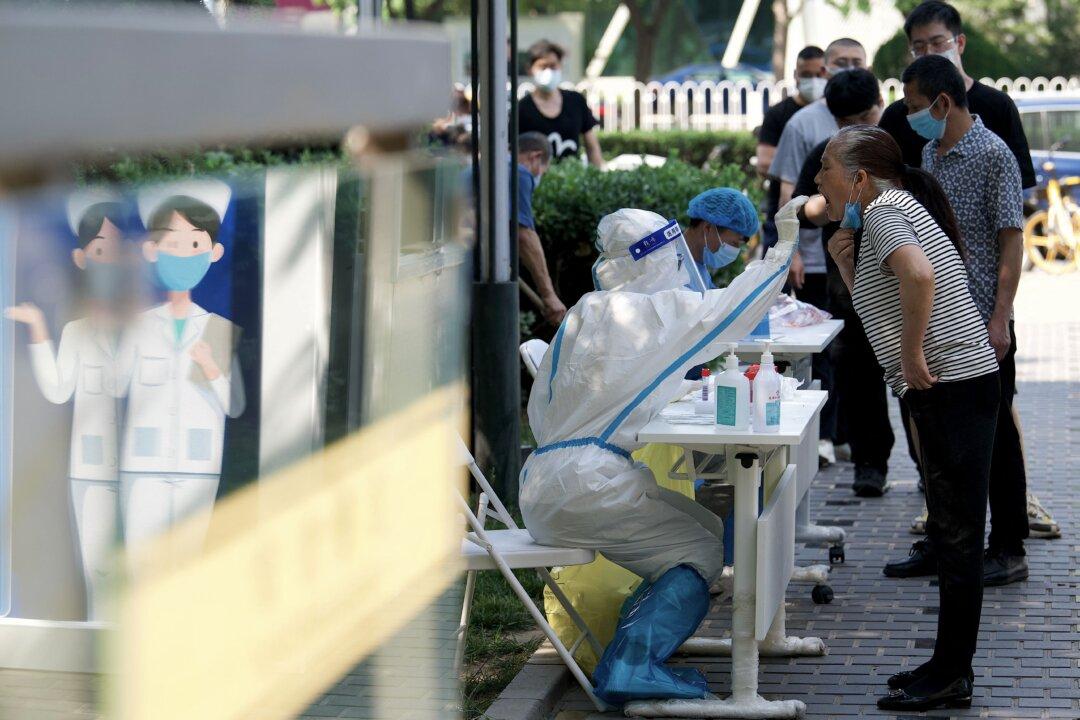UBS Group and JP Morgan Chase cut their forecasts for China’s overall growth domestic product (GDP) growth this year as the country has been crippled by a series of lockdowns implemented by the regime’s strict “zero-COVID” policy.
UBS estimated China’s full-year economic growth would reach 3 percent, rather than 4.2 percent as earlier projected. Meanwhile, JPMorgan downgraded its prediction for the growth of the world’s second economy from 4.3 percent to 3.7 percent. The updated calculation emerges as the regime holds on to its stringent zero-tolerance approach to COVID-19 at the cost of its own economy.




